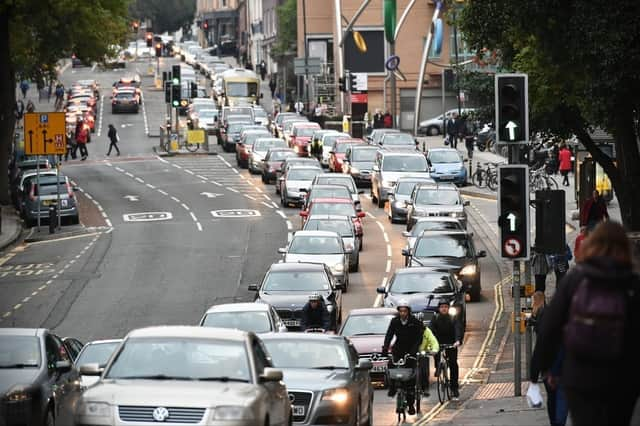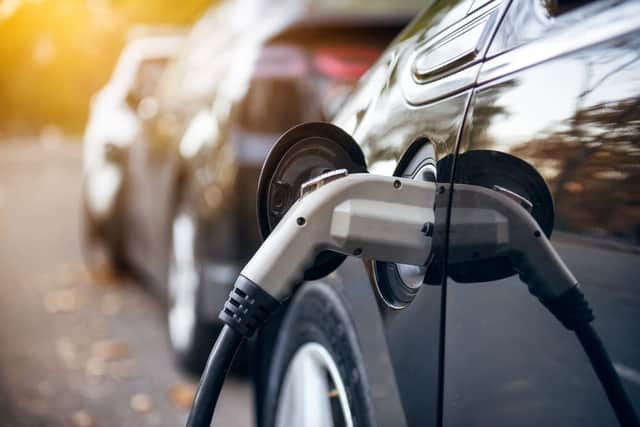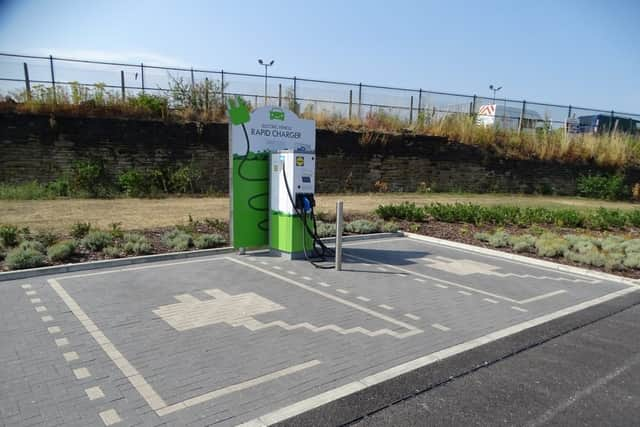Ban on petrol and diesel cars to be brought forward to 2035 and to include hybrids


Prime Minister Boris Johnson has said the Government will consult on accelerating the ban from 2040 to 2035 in a bid to cut the UK’s emissions, with the possibility of it coming even earlier “if feasible”.
He also revealed that under the new proposals the ban will be extended to include petrol-electric and diesel-electric hybrids, which were previously excluded.
Advertisement
Hide AdAdvertisement
Hide AdMr Johnson is using the launch of the COP26 climate talks - due to take place in Glasgow in November - this morning as an opportunity to set out his plans for the UK to tackle climate change.


Mr Johnson said: "As we set out our plans to hit our ambitious 2050 net zero target across this year, so we shall urge others to join us in pledging net zero emissions.
"2020 must be the year we turn the tide on global warming - it will be the year when we choose a cleaner, greener future for all."
Zero emissions
Many European countries already have plans for a similar ban by 2035. Norway, where EV take-up is already far ahead of the UK, has set a target of 2030.


Advertisement
Hide AdAdvertisement
Hide AdThe ban is part of efforts to reduce the UK’s carbon emissions to virtually zero by 2050. Experts have warned that the current 2040 target date will make the switchover too late to hit this target, prompting the new consultation.
Under the new proposals even plug-in hybrid model sales will be stopped by 2035 (Photo: Shutterstock)
It will see the sale of all new internal combustion cars stopped by 2035, leaving zero-emission battery electric vehicles and hydrogen fuel cell cars as the only options. Previous plans had allowed for the continued sale of “electrified” combustion-engine cars such as self-charging and plug-in hybrids, many of which can cover up to 30 miles in pure-electric mode but which still generate CO2 emissions.
Moving the goalposts
The announcement has been caused concern in the car industry, with the Government accused of drastically changing the landscape, especially on the matter of hybrids.
Advertisement
Hide AdAdvertisement
Hide AdMike Hawes, chief executive of the Society for Motor Manufacturers and Traders said: “It’s extremely concerning that government has seemingly moved the goalposts for consumers and industry on such a critical issue.
“Manufacturers are fully invested in a zero emissions future, with some 60 plug-in models now on the market and 34 more coming in 2020. However, with current demand for this still expensive technology still just a fraction of sales, it’s clear that accelerating an already very challenging ambition will take more than industry investment.”
Registrations of EVs rose 140 per cent last year but still accounted for just 1.4 per cent of all new cars registered in 2019.
The news has prompted renewed calls for rapid expansion of the UK's public charging network (Photo: Shutterstock)
Advertisement
Hide AdAdvertisement
Hide AdMr Hawes added: “This is about market transformation, yet we still don’t have clarity on the future of the plug-in car grant - the most significant driver of EV uptake - which ends in just 60 days’ time, while the UK’s charging network is still woefully inadequate.
“If the UK is to lead the global zero emissions agenda, we need a competitive marketplace and a competitive business environment to encourage manufacturers to sell and build here. A date without a plan will merely destroy value today.”
Grants and better infrastructure
The AA’s Edmund King called the new plan “incredibly challenging”. He said: We must question whether we will have a sufficient supply of a full cross-section of zero emissions vehicles in less than 15 years.
"We will also need a package of grants coupled with a comprehensive charging infrastructure at homes and in towns, cities, motorways and rural locations.
Advertisement
Hide AdAdvertisement
Hide Ad"At the very least the Government should take up the AA demand to cut VAT on new EVs to boost sales and make vehicles more affordable to those on lower incomes."
The RAC's head of policy Nicholas Lyes said that the move was not surprising but presented issues that need to be addressed.
He said: "There is indisputable need to tackle climate change.
“A more ambitious target should be the catalyst for faster change, but there are clearly many hurdles to cross. Manufacturers face a great challenge in switching their production from conventional powertrains to cleaner electric technology. More electric vehicles will also require a great deal of investment in charging infrastructure – particularly for those who rely on on-street parking outside their homes.
Advertisement
Hide AdAdvertisement
Hide Ad“Drivers themselves are showing greater interest in purchasing electric vehicles. But while EV take-up is accelerating, high initial purchase prices are still holding sales back. These will inevitably come down as manufacturers bring out more and more electric vehicles. In the short to medium-term we should not, however, overlook the role plug-in hybrid vehicles with cleaner than ever petrol engines could play in bridging the gap to going completely electric.
“In the meantime we urge the Government to extend the plug-in car grant for at least another three years to help those that want to go electric, but who are put off by the high initial costs. At a local level, authorities should also incentivise their use with cheaper parking rates and lower residents’ parking permit fees.”
This article first appeared on The Scotsman